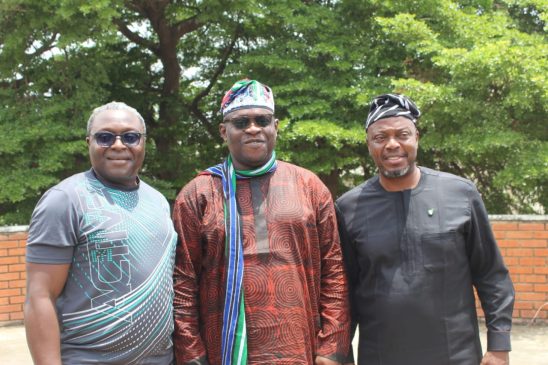The National Film and Video Censors Board (NFVCB) has pledged full support for the Benue State Government’s efforts to develop a comprehensive film policy and strengthen the state’s creative ecosystem. This commitment was made by the Executive Director, Dr. Shaibu Husseini during a courtesy visit by a delegation from Benue State, led by Ambassador David Allgreen Eiase, Consultant on Film Development, to the NFVCB headquarters in Abuja.
Receiving the delegation, Dr. Shaibu, who is also the chief executive of the Board, commended Benue State for its intentional shift toward film development, especially with the establishment of a dedicated Ministry of Youth, Sports, and Creativity. He described the move as a forward-thinking step in recognizing the value of the creative economy, particularly for youth engagement and empowerment.
Dr. Husseini emphasized the importance of building a clear, functional film policy that will serve as a roadmap for the growth of the industry in Benue State. He assured the delegation of the Board’s readiness to provide technical support and guidance in policy formulation, regulatory framework, and institutional strengthening.
As part of the broader collaboration, Dr. Husseini proposed the establishment of a Benue State Film Office—a strategic hub that would facilitate production support, access to grants, local talent sourcing, and regulatory services. He noted that such offices have proven successful in other states by attracting investments, reducing production costs, and fostering a thriving film environment.
He further expressed the Board’s commitment to capacity building, particularly for emerging producers and distributors. According to him, training programs tailored to distribution and classification standards will not only improve the quality of content but also streamline the Classification of films and video works.
On his part, Ambassador Eiase conveyed the appreciation of His Excellency, the Executive Governor of Benue State, Rev. Fr. Hycent Alia and highlighted the administration’s resolve to create an enabling environment for filmmakers. He revealed that, for the first time, the state government is initiating a revolving fund for filmmakers through the Benue Investment and Property Company (BIPC). This fund is aimed at providing accessible financing for film projects, boosting production, and incentivizing investment in the local creative industry.
Ambassador Eiase also underscored the state’s goal of positioning Benue as a cultural powerhouse, where authentic stories rooted in its people’s heritage can be told with professionalism and pride.
In closing, Dr. Husseini reiterated the NFVCB’s commitment to partnering with Benue State in building a structured, inclusive, and sustainable film industry—one that contributes meaningfully to national development, cultural preservation, and youth employment.
.




